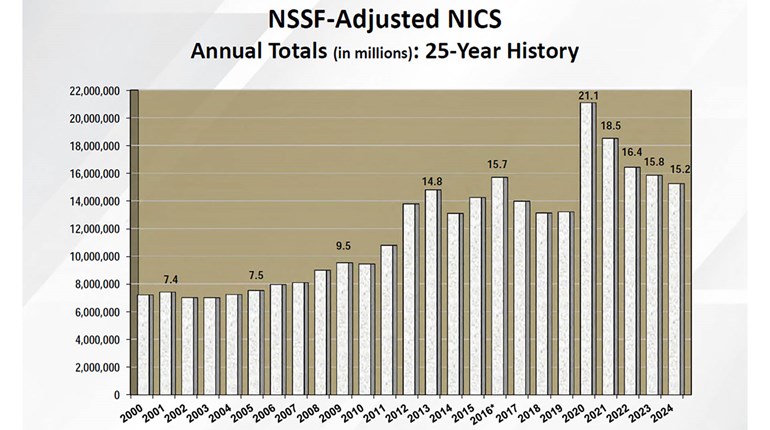
You hear the same call for action in the wake of almost every tragedy involving a firearm: “We need background checks,” the gun haters say. “It’s a cure-all that will wipe out all such crime in our country.”
So about 20 years ago, the anti-gun crowd no doubt whooped when the National Instant Criminal Background Checks System (NICS) was created. “Finally, we’ll have no more crime involving guns,” they said.
But the gun-control crowd is overlooking one thing: Criminals don’t obey the law. If they did, they wouldn’t be criminals in the first place.
It should come as no surprise, therefore, that a 2019 report by the U.S. Sentencing Commission (USSC) shows that when someone who has committed a crime with a gun in the past is released from prison, that individual is more likely to become a repeat offender compared to an inmate who served time for an offense that did not involve a firearm. Not only that, but those who had used guns during the commission of a serious crime also ended up back in the justice system more quickly.
The U.S. Sentencing Commission is an independent agency in the judicial branch of government created by the Sentencing Reform Act (SRA) of 1984. Congress enacted the SRA in response to widespread disparity in federal sentencing, ushering in a new era of federal sentencing by creating the USSC and promulgating federal-sentencing guidelines.
The new USSC study shows that 68 percent of felons involved in crime with a firearm were back in custody within the eight-year period of the study. The median time on the street before they were back in the system was 17 months. Criminals who didn’t use firearms posted a 46-percent recidivism rate, and they were out for a median span of 22 months.
As further proof that background checks are fallacious, consider this. Criminals themselves admit they don’t typically go through normal channels to get a gun. A U.S. Department of Justice (DOJ) study confirmed more than half of those incarcerated for crimes involving a gun acquired the firearm through back channels. The main source was the underground market—which was the supply line for 43 percent of criminals.
- Some 25 percent said they got a gun from a family member or friend;
- 7 percent said they found it, and
- 6 percent said they had stolen it.
Only 7 percent said they purchased it under their own name.
Background checks are nothing more than a smoke-and-mirrors approach. Rather than reducing the incidence of violent crime, the NICS system has merely added cost and a layer of bureaucracy to the lawful purchase of firearms.
Like most of the so-called solutions gun haters devise, background checks have done nothing but make it more difficult for law-abiding citizens to exercise their Second Amendment rights to keep and bear arms.


































